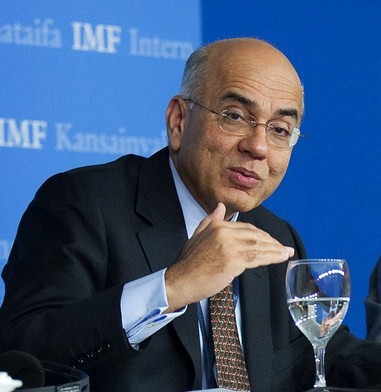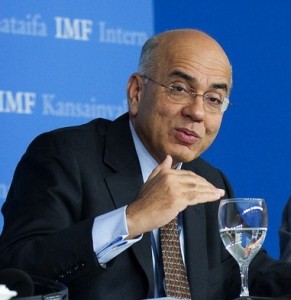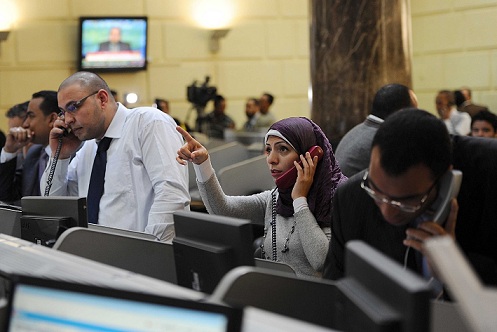Governments in a number of countries in the Middle East and North Africa region face a growing need to take politically difficult steps to reduce large fiscal deficits. Reducing deficits is, of course, not an end in itself. But in many countries, deficits are so large that they will begin to hurt growth and financial stability. At the same time, measures to trim the deficit can have a negative effect on economic growth in the short run. So, the question is: what measures can policymeasures take to reduce budget deficits whilst minimising their negative impact on economic growth and vulnerable members of society?
In response to social demands and rising food and fuel prices, governments across the region have increased spending on subsidies and wages significantly over the past two years. Public revenues, however, have been declining for a variety of reasons, including the slowdown in regional economic activity. As a result, oil-importing countries in the Middle East and North Africa (MENA) have seen a large increase in their chronic budget deficits, which grew to an average of more than 8.5% of GDP in 2012 from about 5.5% in 2010.
Such an increase in fiscal imbalances is quite difficult to sustain over a long period of time. In fact, looking ahead, there is little room for additional government spending. Average public debt in MENA countries is more than 78% of GDP, and slower than projected growth or higher interest rates could put debt on an unsustainable path.
Choosing the best path
Typically, deficit reduction calls for, on one hand, measures to increase government revenue and, on the other, measures cutting spending. Revenues can be increased either by raising tax rates or by broadening the tax base. The latter can be achieved by implementing reform measures to make the tax system more efficient and to address tax evasion and tax avoidance. Reducing government expenditure entails cuts in both current (non-interest) and capital spending.
Rebalancing the composition of revenues and expenditures may help lessen the adverse side effects of deficit cuts on growth. Figures 1 and 2 show selected tax and expenditure measures in MENA oil–importing countries, ranked by their short-term effect on output, with rankings derived from previous IMF analyses of advanced economies.
On the revenue side, property and sales taxes are the most growth-friendly measures for raising revenues. Trade and income taxes are the least growth-friendly. Egypt is among those oil-importing economies in the region with the greatest scope to rebalance taxes towards more growth-friendly instruments. Djibouti, Jordan, and Morocco are among those with less scope.
On the expenditure side, social benefits and subsidies are the least growth-friendly measures, whereas capital spending tends to be the most growth-friendly instrument. Spending, especially on subsidies, is largest in Egypt, Jordan, Lebanon, Morocco, and Tunisia, suggesting that there is scope to lower such spending as a growth-friendly instrument for fiscal consolidation. In contrast, productive capital spending is smallest for Lebanon, Sudan, and Tunisia, suggesting that there is space to increase such spending.
A key fiscal priority for the MENA region is to replace generalised subsidies with more targeted social safety net instruments. Besides being very costly, generalised subsidies do not support the poor effectively. For example, one-third of energy subsidies in Egypt benefit the wealthiest one-fifth of the population. Our research suggests that the situation is similar in many other countries in the region.
Quality also matters
Improving the quality of government spending more generally is critical for responding to the aspirations and social needs of populations across MENA. This would help make room to boost investment spending and reduce fiscal deficits that are increasing debt levels and crowding out lending to the private sector.
Structural reform policies that aim to enhance the overall productivity of the economy and hence raise growth potential could also offset the negative impact of fiscal consolidation.
Successful implementation of these initiatives to both enhance the quality of spending and rebalance the composition of revenue-raising and expenditure should help create more and better employment opportunities, and lead to faster economic growth in the MENA region that would benefit all its inhabitants.
Masood Ahmed is Director of the IMF’s Middle East and Central Asia Department





